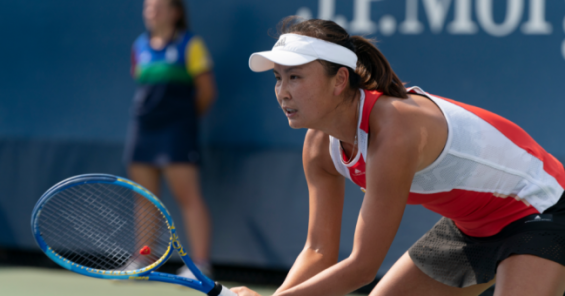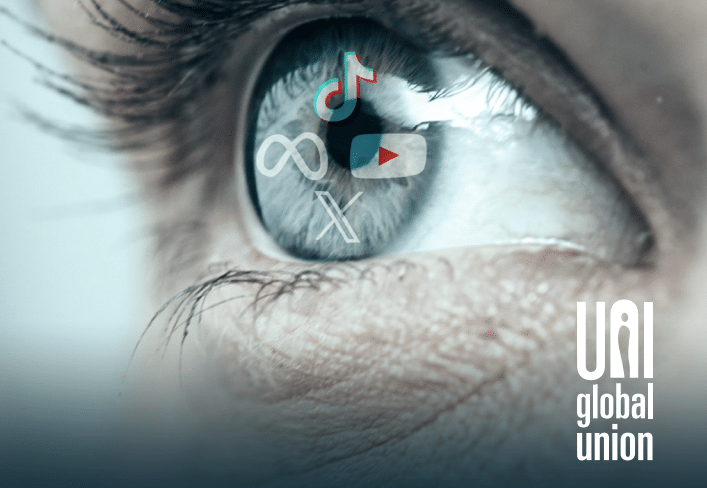Sport & Rights Alliance Calls on the IOC To Put People Before Partnerships
The International Olympic Committee (IOC) should immediately stop supporting China’s strategy of suppression and start prioritizing protecting athletes and upholding its human rights obligations, the Sport & Rights Alliance said today. The process of developing an IOC human rights strategic framework should include meaningful engagement with affected stakeholders’ representatives, as set out in Rachel Davis and Zeid Ra’ad Al Hussein’s “Recommendations for an IOC Human Rights Strategy.”
After weeks of increasing concern and calls for information on the whereabouts of Peng Shuai, the Chinese tennis player and three-time Olympian, the IOC said in a statement that President Thomas Bach had spoken with Peng over a 30-minute video call and was assured of her safety and wellbeing. As reported by Human Rights Watch, Chinese authorities have continued to impose a media and internet blackout of the case, and words such as “tennis” and “Peng” have been censored or restricted.
“The behavior of the IOC in relation to Peng Shuai’s sexual assault allegations and disappearance has been irresponsible and shows just how hollow its understanding of human rights really is,” said Andrea Florence, acting director of the Sport & Rights Alliance. “The IOC’s eagerness to ignore the voice of an Olympian who may be in danger and to support claims of state-sponsored media in China shows the urgent and critical need for an IOC human rights strategy in close consultation with affected stakeholders, placing athletes at the center.”
On November 2, Peng Shuai stated on social media that she had been sexually assaulted and forced into a sexual relationship with Zhang Gaoli, age 75, one of the Chinese Communist Party’s former top officials and leader of a State Council working group overseeing Beijing 2022 preparations. The statement given by the IOC contained no mention of these serious accusations, let alone any plans to investigate or provide Peng with trauma assistance or legal support.
“The process of coming forward with allegations of sexual abuse, especially against such a powerful figure, is incredibly brave, difficult, and fraught with personal risk,” said Julie Ann Rivers-Cochran, executive director of The Army of Survivors, a survivor-founded organization formed after the Olympic system failure to deal with sexual abuse by Larry Nassar, a doctor for USA Gymnastics and the US Olympic Committee. “Peng Shuai should be commended, believed and provided with the utmost protection through trauma-informed support and a survivor-centered investigation, if she so desires, that takes her claims and her safety seriously. The IOC’s response has involved none of these elements – yet more evidence of its ad-hoc and misguided approach to human rights.”
Under its own commitment to human rights and international law, and as the “owner of the Olympic Games,” the IOC has the urgent responsibility to prioritize the safety and freedom of Peng Shuai, and other athletes and individuals traveling in two months’ time to China for the 2022 Beijing Winter Games, the SRA said. This includes using its strong leverage to urge the Chinese government to open an independent and transparent investigation into Peng’s sexual assault allegations if she so desires.
In contrast with the IOC, other sport governing bodies, player associations, and high-profile professional athletes have sounded the alarm in support of Peng Shuai. Steve Simon, chairman & CEO of the Women’s Tennis Association (WTA), which holds multiple tournaments in China, has released statements calling for verifiable proof of Peng’s safety and a full investigation into her claims, saying its “relationship with China is at a crossroads.”
“Steve Simon and the WTA are showing how a sports federation can stand with athletes and uphold human rights, putting the needs of players over one of their most valuable partnerships,” said Minky Worden, director of global initiatives at Human Rights Watch. “The IOC should match the WTA in telling China it will move the 2022 Olympics unless Peng and her family are safe to speak freely, not under duress.”
Peng Shuai’s precarious and unclear situation proves just how easily the IOC’s partnership with China can pose real risks to athlete safety and health. The Sport & Rights Alliance joins its partners Human Rights Watch, The Army of Survivors, the World Players Association, and other human rights defenders in calling on the IOC to use its leverage to ensure Peng Shuai’s immediate safety.
The Sport & Rights Alliance Signatory Organizations
- The Army of Survivors
- Committee to Protect Journalists
- Football Supporters Europe
- Human Rights Watch
- The International Trade Union Confederation
- Transparency International Germany
- World Players Association, UNI Global Union


